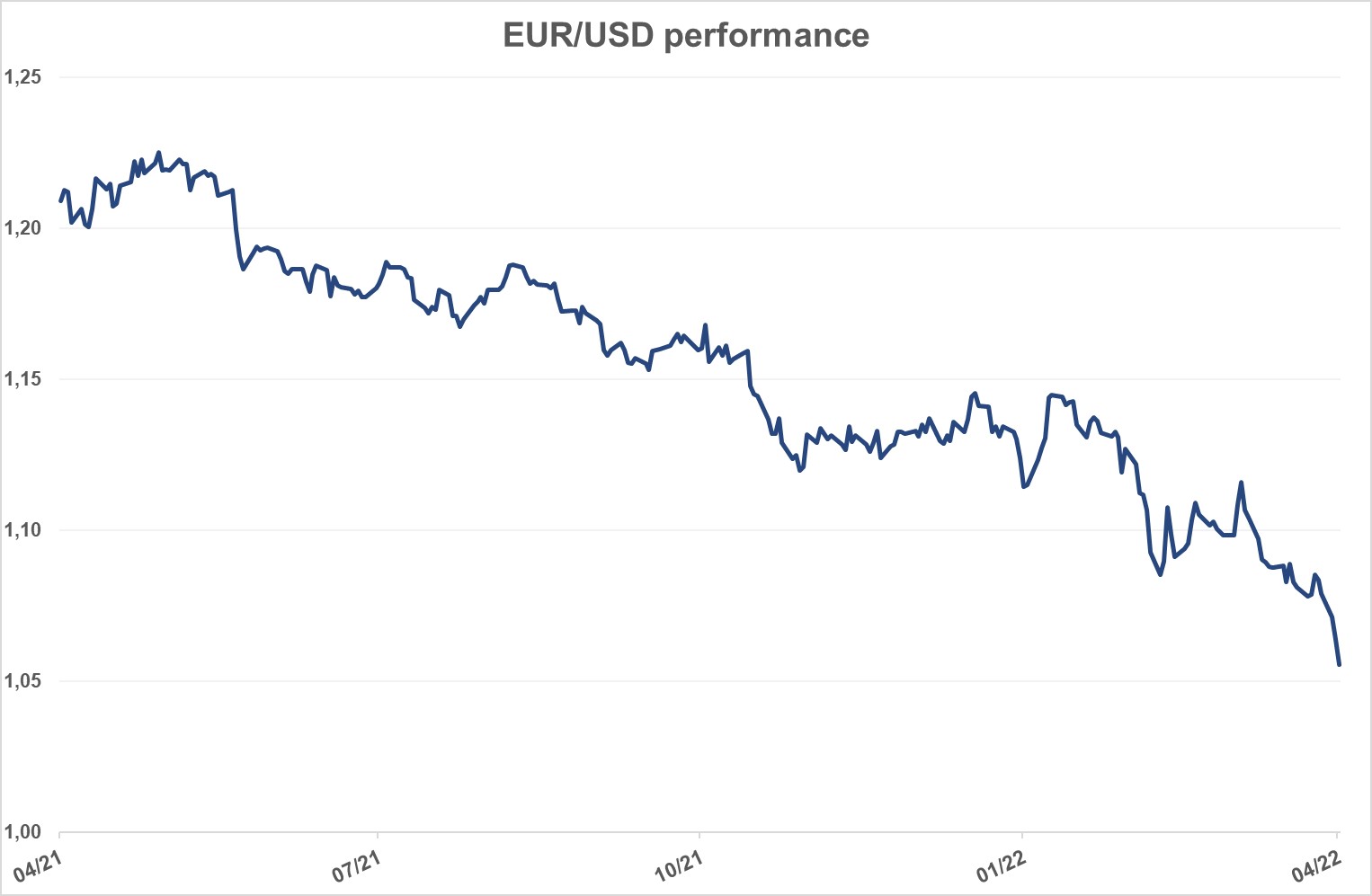Volatility continues to set the pace for markets
2 May de 2022
Volatility continues to set the pace for markets

As April comes to an end, volatility has taken centre stage. In addition to the intensification of the conflict between Russia and Ukraine, we have seen strict lockdowns in China to enforce with its zero-COVID policy. This situation may slow global growth due to reduced trade between countries, rising energy prices and tougher financial conditions imposed by central banks, whose main objective is to address rampant inflation. In the last fortnight, we have seen the world’s leading companies present their results.
1. New lockdowns in China
Because of the China’s government’s zero COVID policy, ever-expanding lockdowns were renewed due to a recent increase in the number of COVID infections, leading the main Asian indices to plunge. Shanghai was the main city affected by these lockdowns, increasing investor concern about the impact on the global economy. The longer the lockdowns, the greater the disruptions to the world economy and supply chains, given that Shanghai is a financial hub, China’s largest port and close to manufacturing hubs such as the provinces of Zhejiang and Jiangsu.

2. Dollar highs and market volatility
Recent comments from members of the European Central Bank have pointed to the possibility of a rate hike next July, driven by constant pressure from the cost of energy and the rest of commodities, which are pushing inflation to record highs. This increase in July is expected to be accompanied by additional ones in September and December and four more rate hikes in 2023. Meanwhile, the US Federal Reserve continued with plans for monetary tightening. In this context, the dollar continued to appreciate, reaching a low of 1.05 against the Euro. The growing concern over energy security, which affects Europe more directly, led to the euro plunge, despite Emmanuel Macron’s victory in France’s general election of April 24th.

On the other hand, disappointing corporate results from US tech giants such as Alphabet, Netflix and Amazon injected volatility into the market, especially the Nasdaq index, which took the heaviest hits in recent sessions.
3. Conflict intensification between Russia and Ukraine
Russia made the move Europe so feared it would make. On April 27th, Gazprom unilaterally decided to cut off gas supplies to Poland and Bulgaria, after both countries refused to pay for the gas in Roubles. Meanwhile, both the United States and the European Union, including Germany, which was initially reluctant to provide this kind of support, agreed to increase their arms supply to Ukraine. In this regard, there was significant confusion in Europe about how payments for Russian gas will proceed from now on and whether there will be cuts in its supply beyond Poland and Bulgaria.
#MoraBancExperts



